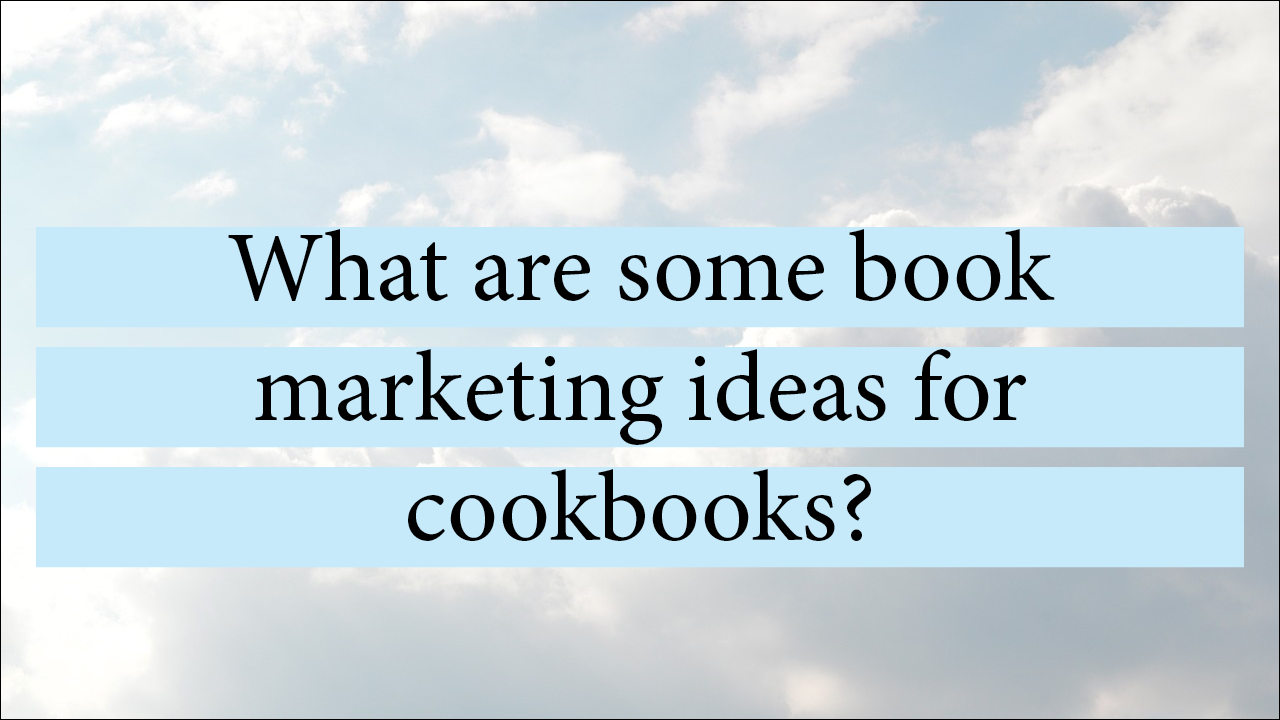Cookbooks are more than just a collection of recipes; they are a culinary journey, a labor of love, and a source of inspiration for many. But in the world of publishing, getting your cookbook noticed can be a daunting task. In this article, we will explore effective book marketing ideas for cookbooks, helping both novice and seasoned authors in the world of gastronomy to tantalize taste buds, attract readers, and ultimately succeed in the ever-competitive cookbook market.
Table of Contents
- Introduction
- The Power of a Strong Online Presence
- Leveraging Social Media
- Creating Engaging Content
- Food Photography and Styling
- Cooking Classes and Workshops
- Food Bloggers and Influencer Collaborations
- Traditional Marketing Strategies
1. Introduction
Cookbooks, while often niche, have a dedicated and passionate audience. However, to tap into this readership, it’s crucial to create a well-structured marketing plan. Here, we present a variety of strategies, both digital and traditional, to help your cookbook reach its full potential.
2. The Power of a Strong Online Presence
In the digital age, an online presence is your cookbook’s best friend. Building a professional website or blog dedicated to your cookbook can help you establish credibility and provide a platform for readers to engage with your content. Your website can include sample recipes, a blog, and an e-commerce section to sell your book directly.
3. Leveraging Social Media
Social media platforms like Instagram, Facebook, Pinterest, and Twitter provide excellent opportunities for cookbook authors to engage with their target audience. Share tantalizing images of your dishes, behind-the-scenes glimpses, and teaser videos. Utilize relevant hashtags to broaden your reach and engage with your followers through contests, polls, and Q&A sessions.
4. Creating Engaging Content
Content is king in the world of digital marketing. Regularly create blog posts or articles related to your cookbook’s theme. This content can include how-to guides, kitchen tips, and personal stories that resonate with your audience. Engaging content keeps your audience returning for more, increasing your visibility.
5. Food Photography and Styling
Investing in high-quality food photography and styling is paramount for cookbook marketing. Stunning visuals can evoke strong emotions and trigger cravings. A professional food photographer can capture the essence of your recipes, making them more appealing to potential readers.
6. Cooking Classes and Workshops
Hosting in-person or virtual cooking classes and workshops can create a unique connection with your readers. These events allow you to demonstrate your recipes, provide cooking tips, and directly engage with your audience. They can be a powerful promotional tool, especially for those who love hands-on learning.
7. Food Bloggers and Influencer Collaborations
Collaborating with food bloggers and influencers in the culinary niche can be a game-changer. They can provide honest reviews, share your content with their followers, and help you reach a broader audience. Building these relationships takes time, but they can yield significant results.
8. Traditional Marketing Strategies
Don’t overlook traditional marketing channels. Utilize press releases, book signings, and appearances on local TV or radio to generate buzz about your cookbook. You can also approach local bookstores for promotions, and consider participating in food-related events and fairs to reach a diverse audience.

9. Frequently Asked Questions (FAQs)
What is the importance of book marketing for cookbooks?
Book marketing is crucial because it helps you connect with your target audience and promote your cookbook effectively. Without a solid marketing plan, your cookbook might remain undiscovered, no matter how great the recipes are.
How can I leverage social media for cookbook promotion?
Social media platforms offer the opportunity to showcase your cookbook through engaging content, images, and videos. Use these platforms to engage with your target audience, build a community, and create excitement around your cookbook.
What are some effective strategies for engaging content?
Create content that is relevant, relatable, and valuable to your audience. Share tips, stories, and insights related to your cookbook’s theme to keep your audience engaged and interested.
How can I utilize food photography and styling for promotion?
Invest in professional food photography to make your dishes look irresistible. High-quality visuals can entice potential readers and increase interest in your cookbook.
Are cooking classes and workshops a viable marketing option?
Cooking classes and workshops are an excellent way to connect with your audience and demonstrate your recipes. These interactive sessions can generate excitement and trust among your readers.
How can I collaborate with food bloggers and influencers?
Identify bloggers and influencers in the food and cooking niche, and reach out to them for collaborations. They can help promote your cookbook to a wider audience and provide valuable reviews.
What are some traditional marketing strategies for cookbooks?
Traditional marketing strategies include press releases, book signings, TV and radio appearances, and participation in local events and fairs. These methods can help you reach a broader audience and generate interest in your cookbook.
Marketing your cookbook is as essential as perfecting your recipes. With the right mix of digital and traditional marketing strategies, you can reach your target audience, build excitement, and achieve success in the competitive world of cookbook publishing. Remember, while the journey might be demanding, the end result – a successful cookbook – is worth every effort.
In conclusion, effective book marketing strategies can make all the difference in the success of your literary work. For expert guidance and services in book marketing, visit us at Alissa Daydreams.


Comments are closed